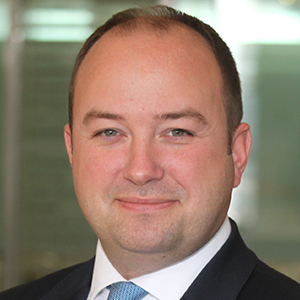Individuals or small teams who have had success in property development often do so by using their own money or friends’ and families’ money. With the property market being particularly buoyant at the moment, many small property developers would like to take their investment activities to the ‘next level’ by raising external equity capital.
One interesting way of doing this is the small property fund manager regime, which offers small to medium property developers and investors a way to get a foot on the first rung of the fund management ladder, with minimal cost and compliance obligations.
Despite the regime existing since 2013, it is not as well known about as one might expect, either in the property or fund management sectors, which is surprising given its obvious appeal to property entrepreneurs looking to raise equity capital for their projects.
In this article, Keystone’s financial services lawyer Simon Sutcliffe outlines the benefits and restrictions of the small property fund manager regime as well as the key steps to take to step up your fund.
Key benefits
- The manager does not need to be authorised by the FCA. Instead it registers itself with the FCA as a small ‘Alternative Investment Fund Manager’ (a ‘small AIFM’). The FCA has 3 months to consider the application.
- There are no minimum capital or infrastructure requirements for the manager. The manager can create a private real estate fund and invite investment from investors qualified on the basis of their investment experience, net worth or other criteria.
- The fund operator is primarily responsible for regulatory compliance with the FCA’s rules and administration of the fund, leaving the manager able to concentrate on its development and investment activities.
- Investors and real estate projects can be located in or outside the UK.
- Affordable to set-up and operate.
Eligibility and restrictions
Whilst a small AIFM is relatively straightforward to set up and operate, there is an eligibility criteria and restrictions to consider.
The fund:
- The fund cannot be intended for or promoted to ‘retail’ investors, i.e. the ordinary investing public.
- The majority of the fund’s assets must be in real property (i.e. land and buildings). It cannot be invested in financial instruments, such as shares and bonds (shares in companies used to hold particular properties are permitted).
- The fund must be operated by a firm authorised by the FCA as a fund operator – this will usually be in the form of a third-party service provider who specialises in operating property funds for small managers.
The manager:
- The manager must be ‘small’, meaning its assets under management must be under €100 million (including leverage/borrowings).
- The manager must be UK-based; it would usually be incorporated as a limited company or limited liability partnership.
- The manager does have some direct, limited ongoing obligations to the FCA in addition to those of the fund operator, chiefly in terms keeping the FCA up to date with certain information about the manager and its activities.
- As the manager is only registered but not ‘authorised’ by the FCA, it is not permitted to undertake any other activities requiring authorisation from the FCA.
- None of the individuals involved with the management business can have been convicted of fraud or other dishonesty-related offences, in the UK or elsewhere.
Set-up
The key steps to setting up a small AIFM are:
- Decide on an operator. The appointment of an FCA-authorised scheme operator is mandatory, and so a sensible early step is to obtain an informal commitment from a provider to be appointed as operator of the intended fund. Operators are not expecting decades of experience and vast past success in all cases, but they do look for individuals who are competent, professional and have a reasonable amount of relevant experience in proportion to their future plans.
- Establish a management firm or refine an existing one.
- Register the manager with the FCA as a small ‘Alternative Investment Fund Manager’. The paperwork involved is light, and the FCA has 3 months to determine whether to approve the application.
- Establish the fund and appoint the operator.
- Create appropriate fund marketing materials and potentially appoint one or more placement agents, who can connect with investors outside of the manager’s own network.
If you need further assistance creating your first investment fund, or help deciding if the small manager regime is suitable for you, please get in touch with Simon Sutcliffe.
This article is for general information purposes only and does not constitute legal or professional advice. It should not be used as a substitute for legal advice relating to your particular circumstances. Please note that the law may have changed since the date of this article.

